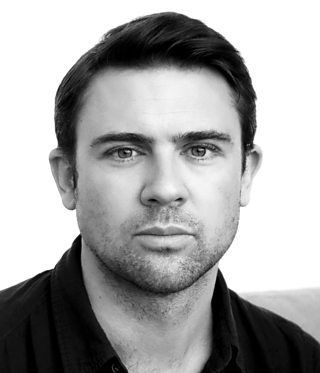Eight expert tips for writing your first novel
Isolation can be tough and around the world people have been finding unique ways to cope with life under lockdown. If you’re bored or in need of a distraction this could be the chance to pursue the creative project you’ve always put off – like writing your first novel.
Front Row turned to authors Nikita Lalwani and Owen Sheers for some professional advice on how to do just that.

1. Find the time and space for deep thinking
Everyone’s isolation is different and not everyone has spare time on their hands. Parents with children at home from school, like Owen Sheers, may find they have less time than ever. But to write a novel Owen advises you must dedicate real time to thought. “Find where you can get that space, that opening for deep thought,” he says. “That might be really early in the morning; it might be last thing at night. I think what I have found is that it’s amazing how exhilarating the process of writing can be. You can arrive at your desk or onto your sofa feeling exhausted but if you start I tend to find that you find some intellectual energy from somewhere just from the practice of doing it.”
2. Use your situation as an inspiration
The world is in the middle of a crisis, with lives turned upside down on a personal level. Could this provide the subject matter for you novel? “I do think a crisis is a great time to start writing if you’re alone at home, if you’ve got the mental capacity to do it,” suggests Nikita Lalwani. “Often writing can start, for me, from a sense of unease: it’s from interrogating that unease that the jeopardy comes, the jeopardy that’s required to create art. There’s a quote from the writer Don DeLillo, where he says: “I begin to recognise myself, word by word, as I work through a sentence.” I’ve always thought that; that [writing] can be a great act of self-knowing.”

3. Ask yourself a question you don’t know the answer to
One way to start yourself on the path to a finished book is to try to figure something out through the process of writing,. “You could start by answering a question that you don’t know the answer to; something that has troubled you in your own life,” says Nikita. “I normally start with something where I can see both sides of the story. So I can’t understand whether my response to a situation is right or left.”
4. Think about how your story will end
Nikita also suggests planning where your story will end, even if you don’t know how you’ll get there: “I don’t know if you need a structure in place, but I often think it’s good to try to force yourself to think about the ending, because the ending reveals your intention, even if the ending will change – and it usually does.
5. Get to know your characters as you write
Interesting characters are crucial to an interesting novel, and Owen suggests looking for them in real life. “Like lots of writers, I try to keep notes of interesting traits or people or characteristics that I see around me,” he says.
For Nikita the process of writing puts flesh on the bones. “You can only find out your characters sometimes by writing them,” she says. “You need to allow yourself the draft in which you write the characters, find out who they are, [then] go back and rewrite the book knowing and understanding them.”
6. Plan some problems your characters will have to deal with
Meticulous planning of how each chapter of your book will play out might be daunting, but Nikita has a simpler approach to working out the structure of her novels. “When I’m struggling, I then try to think about what happens at the end of the first third,” she says. “Even if it’s not going to be a novel that works in thirds in a traditional three-act structure I still try to think what can happen about a third or a quarter of the way in that can scatter the pigeons. What can happen that can create a situation that has dilemma for the character and creates a big problem and a lot of mess that needs to be cleaned up? And that’s usually about as far as I go with structure.”

7. Edit your work to trick yourself into writing
When you’re working on a novel, getting started is something that you have to do every day. Having a routine is helpful, but it’s hard enough in normal times. “The only routine I have is every day I aspire to this perfect writing day and I’m yet to find it,” admits Owen. He does have a technique to get himself back into his work each day though. “Start each day by printing out what you wrote the previous day and going through it, with your pen in hand, and editing,” he explains. “That’s partly because it will always need editing, but for me it’s also a way of almost tricking myself back into the story. I kind of have to trick myself into writing, so if it works well at the end of the editing process your pen just carries on flowing and you keep writing. And then, if you’re really lucky, when you type those [edits] up you sometime can trick yourself again and you carry on typing.”
8. Write because you want to, not because you want success
“You can’t think about the outcome too much,” says Nikita. “You can only be true to the idea that you want to interrogate something and you want to write the book. You have to be equal to the task of writing the idea that you’ve come up with and the joy is in the doing.”
Front Row is offering tips to unlock your creativity throughout the period of lockdown.
More creativity in lockdown...
-
![]()
How to draw a portrait at home
Sky Arts' Portrait Artist of the Year Christabel Blackburnshares her tips.
-
![]()
Podcasting tips from the pros
Amanda Litherlannd and Melissa Harrison give their Front Row masterclass.
-
![]()
The theatre designer recreating famous paintings
Molly O'Cathain uses her parents as props to reproduce famous images at home.
-
![]()
Culture in Quarantine
Bringing arts and culture into your home.




